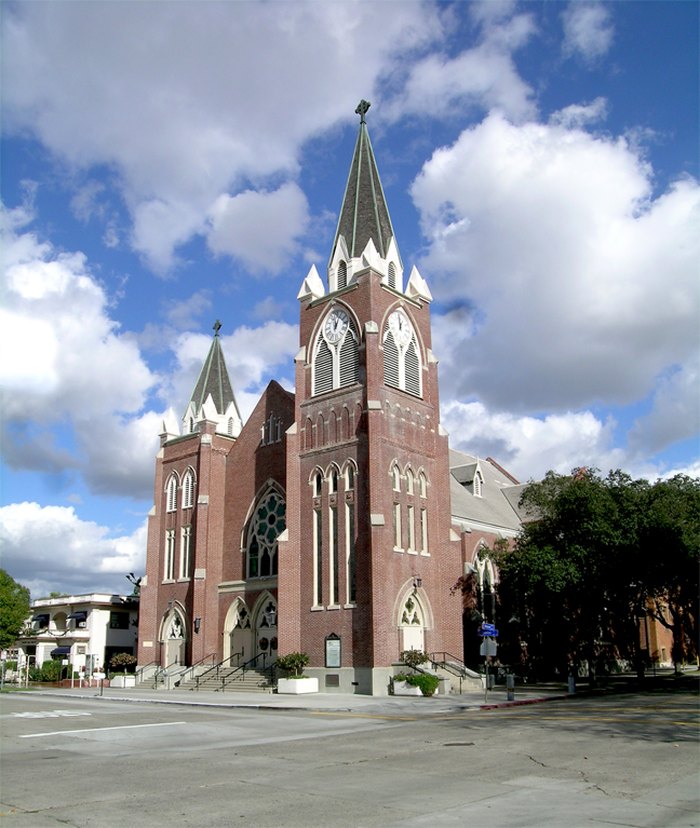A Southern California church is planning to house homeless people in six cabins on its property, an endeavor its pastor hopes will serve as a model for other churches looking to help people in need.
Meridian Baptist Church in El Cajon is partnering with building group Amikas and social service provider Home Start to offer a safe environment to the local homeless community. By Memorial Day, the cabins are expected to be fully occupied.
Pastor Rolland Slade told The Christian Post that the cabins will provide emergency housing for women and children, particularly veteran women with children. The plan is for residents to stay up to 90 days before rotating to permanent or transitional housing.
“So in theory, within a year, we’d be able to have [about] 50 people go through … maybe more,” Slade said. “The cabin platforms are 20 square feet, and inside living spaces [are] 96 square feet for each cabin, having kind of like a porch to it so they can sit outside in a chair and enjoy the breeze.”
So far, the pastor said his church is the only one involved in the project.
But Slade, who became the first African American elected as chair of the Southern Baptist Convention’s Executive Committee in 2020, hopes what his church is doing will inspire other churches and faith communities to help homeless populations in similar ways.
“You know, people have talked to me and said, ‘You know, pastor, you’re the only one doing this; why are you doing it?’ Well, I’m just crazy enough to think about it and to test the waters, so to speak,” he said. “But we’re writing the book. You know, we’re documenting all that we’ve done so that the next church that wants to do this, we can help them.”
Meridian Baptist has served the homeless for “a long time” by hosting weekly dinners. Slade said seeing an Amikas demonstration cabin in the City Heights area inspired him to ask the organization to help build one on his church’s property.
Initially, the church’s locality did not permit residential use. City council members’ involvement became necessary, and staff members were assigned to research what parameters were needed for the church to obtain an administrative zoning permit. The case was then assigned to the planning commission, which came up with the administrative zoning permit.
The used cabins are being built on unused property that the church had nicknamed “Tumbleweed Village” because of the weeds. According to Slade, obtaining a permit and building the cabins took almost three years.
“It’s been interesting because we’ve never built anything like this; the city had never built anything like it,” Slade said. “Our insurance company had never seen anything like this. So everybody’s kind of been learning, and that’s the good part about it. We have been learning, and we’re doing it the right way.”
The platform the sleeping cabins are being built on has been inspected and approved, and all six frames are up and awaiting inspection. Once the framing is done, Slade said the plan is to put in insulation and obtain an electrical permit so the cabins will have electricity.
While he did not detail the number of volunteers helping to construct the cabins, the pastor said phone calls come in “every day” from people wanting to know about volunteer opportunities to assist in the construction. When volunteers show up, the church has them sign a waiver.
“I’m hoping that we’ll see a change in attitudes,” Slade said. “It’s going to be baby steps because people definitely have their opinions on why a person is living unsheltered.”
“I believe that in the 90 days that people are in our cabins the best thing the church can do is love them,” Slade added. “That’s what we’re called to do. That’s what we will do.”
Slade stated that the church is not trying to become a “social service provider.”
“We’re not trying to say, ‘Hey, you live in the village, you have to come to church,’” he continued. “My hope is that because we are doing a good job of loving them, they’ll want to be a part of the community, but they don’t have to be.”
Other churches and ministries have built tiny homes and structures to house the homeless, people recovering from addiction, or even medical patients.
SOURCE: CHRISTIAN POST

